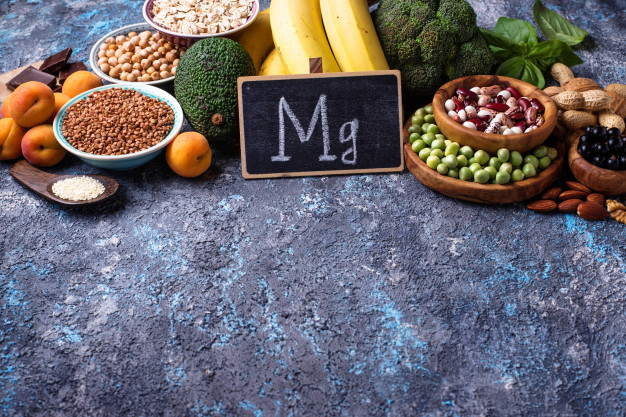As we age, unbound, free iron increases in our body while magnesium decreases. For healthy living, it should be the other way around. Increased magnesium automatically keeps potassium from depleting. There lies the heart connection. Magnesium is not involved in over 300 enzymatic processes — it’s more like over 3000! If you know about methylation, you will know the power of magnesium, and P5P, and copper, and zinc, and manganese, and molybdenum! The number one thing that is depleting magnesium in health conscious people today is taking too much Vitamin D3. If you are taking D3/K2-MK7 without adding magnesium, it would be better had you not taken the former(s). Vitamin D3 depletes retinol (vitamin A), which then depletes ceruloplasmin (a protein needed to transport copper), which then depletes bioavailable copper, which then causes unbound iron buildup and rusting of the blood and organs — because copper regulates iron. Which then causes a great depletion of magnesium!
I’ve seen statistics estimating that 60 percent of the population is deficient in magnesium; and I’ve seen others raising it to 85 percent. In reality though, I believe the entire human race is deficient in magnesium! Yes, even 100 percent of all people are deficient in this important mineral. Even those eating the healthiest foods in the world are deficient. Even those supplementing in high doses are deficient. Magnesium is very easy to lose, like water vapor is very easy to dissipate. Even stress depletes magnesium. Even thinking too hard depletes magnesium. Heat depletes magnesium in our body. Cold depletes magnesium. Exercise depletes magnesium. A sedentary lifestyle depletes magnesium. Consuming the wrong type of magnesium depletes magnesium. Too much or too little of any other mineral or vitamin depletes magnesium. Inflammation anywhere in the body uses magnesium like gasoline, depleting it. Just being alive depletes magnesium.
Magnesium is so important for so many things and is needed in so many things. Our cell’s mitochondria needs magnesium to work at all . The enzymes used to create energy during ATP, from cellular respiration, need magnesium. Potassium and sodium depend on magnesium. Progesterone and all other hormones need magnesium as a co-factor. If you have low progesterone, you have low magnesium. To even sleep properly, you need magnesium. Serotonin, dopamine and melatonin depend on magnesium.
Supplementing magnesium via vegetables is surprisingly not easy. Supplementing it with chlorophyll is also impractical. What is chlorophyll — what does it look like? If you think it’s that green liquid thing you see in bottles, you are sadly mistaken. Chlorophyll does not come in liquid form! Currently, I am taking magnesium glycinate/malate combination, about 500 mg, per day — because they are among the most absorbable forms of magnesium. If you think something like magnesium oxide is absorbable, you are sadly mistaken. You would be lucky to receive even a rate of 4% absorption.
There are other absorbable forms of magnesium besides glycinate and malate, that can be taken — such as magnesium citrate, found in Natural Calm Canada. I personally would rotate between the different forms of absorbable magnesium rather than stick to just one brand. And there is mineral water. Spring water has an affinity to magnesium— it loves this mineral. Decocting or infusing herbs in hot water extracts the magnesium into the water.
You could get magnesium from such herbs as turmeric, guduchi, fenugreek, eclipta alba, saffron, olive leaf extract and many more. However, herbs are designed to be used sparingly— typically 1/4 teaspoon per day, or less.
People’s bodies are not aged by time, but by a depleting of magnesium (and others), an increase in unbound iron; and the build-up of toxins and heavy metals in our cells and tissues, and even by the oxidation of fatty acids.
But what if you can’t tolerate magnesium?
